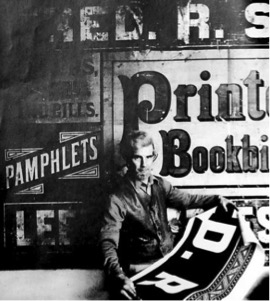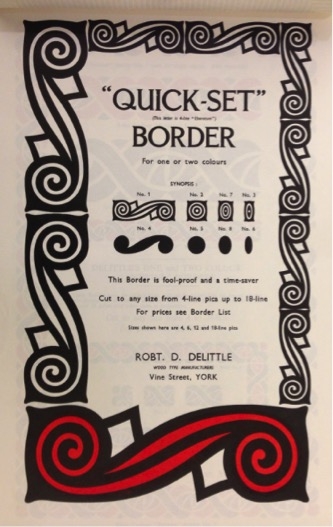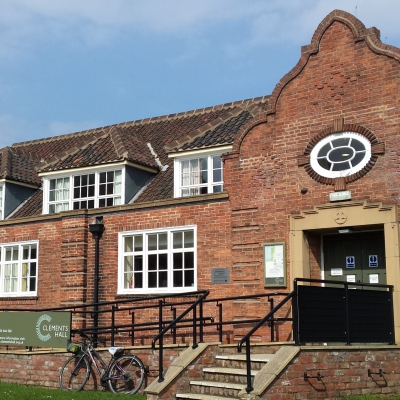
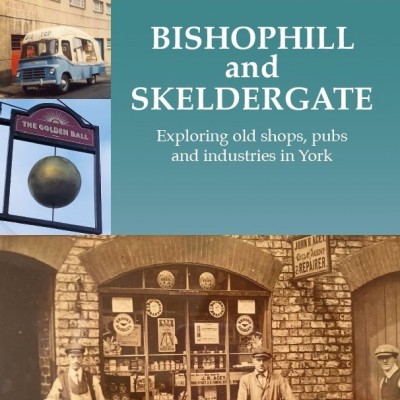


View navigation
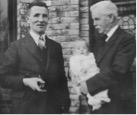 Three generations of wood block printers. On the right is the founder of the business, Robert Duncan DeLittle. His son Robert Geoffrey DeLittle is to his left, and he is holding his grandson Robert James ‘Jim’ DeLittle (Source: York Press, date unknown).
Three generations of wood block printers. On the right is the founder of the business, Robert Duncan DeLittle. His son Robert Geoffrey DeLittle is to his left, and he is holding his grandson Robert James ‘Jim’ DeLittle (Source: York Press, date unknown).